6 Tips to Help You Get Started
10 More Inspirational Tips
(borrowed from the MasterClass website)
From the first lines through the end of the first chapter, a memoir should deliver an opening that is powerful, engaging, and real. If you’re just beginning as a memoirist, follow these writing tips for how to start your memoir:
Click on each title to open its' section.
Engage the reader from the first word. A great memoir draws the reader in from the start. Elizabeth Gilbert opens her bestseller Eat, Pray, Love with an intimate moment: She’s sitting across from a much younger Italian man, wishing he would kiss her. The book documents her life after a devastating divorce and heartbreak, but she leaves the backstory and bad things for later and kicks off her globetrotting tale of self discovery with a moment that grabs the reader’s attention.
A memoir is a deeply personal non-fiction book that you’ll be sharing with strangers. From the beginning, tell your story as if you’re sharing a secret with the reader that you have never told anyone else. This approach makes the reader a confidante and builds trust from the start.
A memoir should also approach a story with the human element in mind and evoke emotion in the reader. Write your first pages from the heart. Use language that will resonate with people on an emotional level.
Reading a David Sedaris memoir is impossible to do without belly laughing, even when he relives some of the unhappiest moments in his childhood. Even if your memoir focuses on a darker story, try leading with humor. The reader will respond to a range of emotions and likely won’t want to feel down throughout an entire book.
Choose a dramatic moment to start your memoir. You can revisit the event in more detail later, but sharing an exciting glimpse of what’s to come can keep the reader engaged. Think of a pivotal turning point later in the story you can tease with a powerful opening. Remember to heighten the drama through the writing mantra. Describe that opening scene with vivid sensory details.
A memoir is a true story of your life, but it should also incorporate the structural elements that make fiction compelling. In your exposition, make sure to set the stage for the rest of the book, establishing yourself as the main character, building out the setting, planting the source of conflict, and teasing out the central theme. Create a story structure with a strong opening, middle, and end to string out a story the reader knows how to follow.
When you tell someone else a story face to face, it’s centered around one event. Take the same approach with your personal memoir from the start. An autobiography captures your whole life story. Memoirs have a more narrow scope, centered around a time period or theme from the writer’s life. There are a million little details and life experiences that might be interesting on their own, but if they do not support your story, you should exclude them. The reader does not need to know what you wore to your high school prom unless the event is relevant to your book.
Writing your own memoir is therapeutic. As you share personal stories, though, remember that you have an audience. Don’t exclusively look inward when you write. Always keep the reader in mind. Make sure your personal narrative is a compelling story. For a great example, read Frank McCourt’s memoir, Angela’s Ashes, which recounts his impoverished upbringing in New York and Ireland. His recollections—of an alcoholic father and a mother desperate to keep her family together—never feel self-serving, and instead they invite the reader into the trauma of his youth.
In writing a memoir, you are promising the reader that what you’re telling them is an honest account of your own life from your perspective. Censoring yourself is easy if you’re retelling stories that involve other people and family members who may remember things differently. Stay true to your narrative while respecting their right to privacy; for instance, maybe you change their names or use initials. Only you can decide what stays and what goes, but remember to deliver an honest story.
When you sit down to write, the perfect opening might be elusive. If writer’s block is standing in the way of your first chapter, remember you don’t need to write in chronological order. Start writing the part of the story that most inspires you, then come back to your beginning after you finish your first draft. In the course of your writing you’ll discover the perfect opening.
Inspirational Memoirs
Click on each title to open its' section.
The "Autobiographical" Memoir
I Know Why the Caged Bird Sings by Maya Angelou
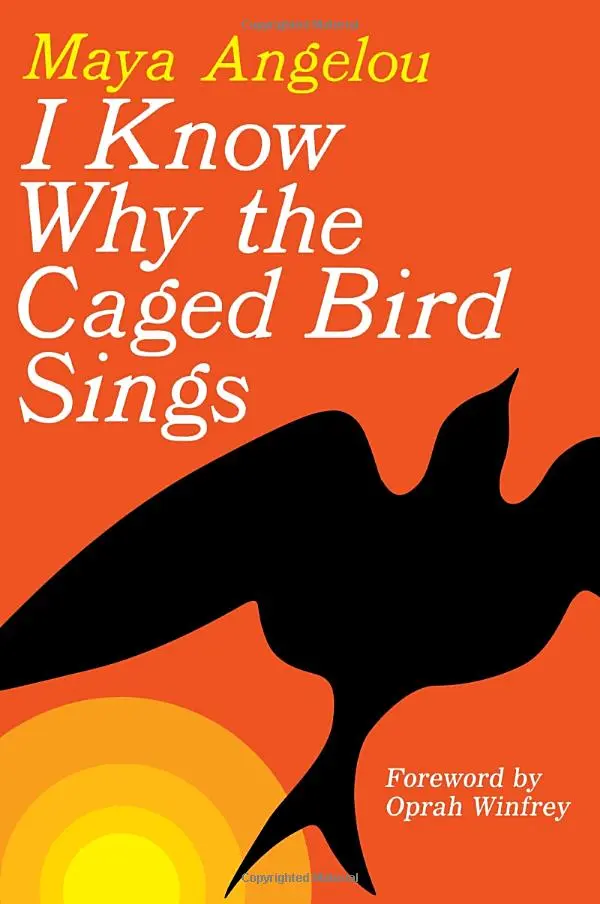
Here is a book as joyous and painful, as mysterious and memorable, as childhood itself. I Know Why the Caged Bird Sings captures the longing of lonely children, the brute insult of bigotry, and the wonder of words that can make the world right. Maya Angelou’s debut memoir is a modern American classic beloved worldwide.
Sent by their mother to live with their devout, self-sufficient grandmother in a small Southern town, Maya and her brother, Bailey, endure the ache of abandonment and the prejudice of the local “powhitetrash.” At eight years old and back at her mother’s side in St. Louis, Maya is attacked by a man many times her age—and has to live with the consequences for a lifetime. Years later, in San Francisco, Maya learns that love for herself, the kindness of others, her own strong spirit, and the ideas of great authors (“I met and fell in love with William Shakespeare”) will allow her to be free instead of imprisoned.
The "Experience" Memoir
The Year of Magical Thinking by Joan Didion
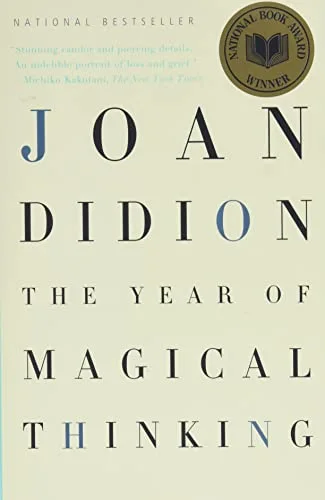
NEW YORK TIMES BESTSELLER • NATIONAL BOOK AWARD WINNER • From one of America’s iconic writers, a stunning book of electric honesty and passion that explores an intensely personal yet universal experience: a portrait of a marriage—and a life, in good times and bad—that will speak to anyone who has ever loved a husband or wife or child.
The “Event” Memoir
Into Thin Air: A Personal Account of the Mt. Everest Disaster by Jon Krakauer
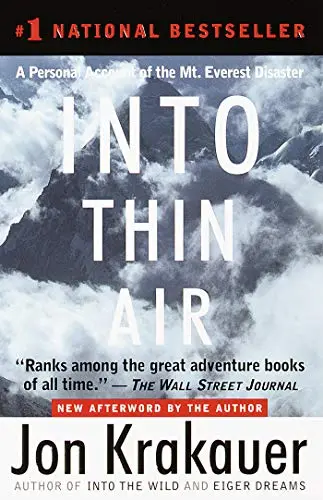
By writing Into Thin Air, Krakauer may have hoped to exorcise some of his own demons and lay to rest some of the painful questions that still surround the event. He takes great pains to provide a balanced picture of the people and events he witnessed and gives due credit to the tireless and dedicated Sherpas. He also avoids blasting easy targets such as Sandy Pittman, the wealthy socialite who brought an espresso maker along on the expedition. Krakauer's highly personal inquiry into the catastrophe provides a great deal of insight into what went wrong.
The "Childhood" Memoir
Angela's Ashes by Frank McCourt
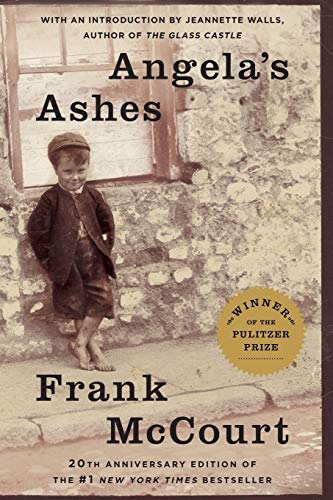
A Pulitzer Prize–winning, #1 New York Times bestseller, Angela’s Ashes is Frank McCourt’s masterful memoir of his childhood in Ireland.
“When I look back on my childhood I wonder how I managed to survive at all. It was, of course, a miserable childhood: the happy childhood is hardly worth your while. Worse than the ordinary miserable childhood is the miserable Irish childhood, and worse yet is the miserable Irish Catholic childhood.”
So begins the luminous memoir of Frank McCourt, born in Depression-era Brooklyn to recent Irish immigrants and raised in the slums of Limerick, Ireland. Frank’s mother, Angela, has no money to feed the children since Frank’s father, Malachy, rarely works, and when he does he drinks his wages. Yet Malachy—exasperating, irresponsible, and beguiling—does nurture in Frank an appetite for the one thing he can provide: a story. Frank lives for his father’s tales of Cuchulain, who saved Ireland, and of the Angel on the Seventh Step, who brings his mother babies.
Angela’s Ashes, imbued on every page with Frank McCourt’s astounding humor and compassion, is a glorious book that bears all the marks of a classic.
The "Experience" Memoir
Grace and Grit by Ken Wilber
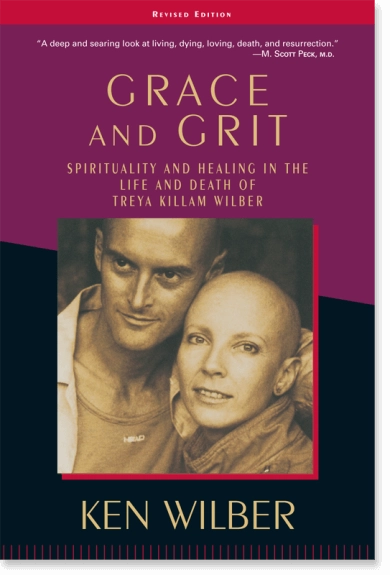
Spirituality and Healing in the Life and Death of Treya Killam Wilber
Here is a deeply moving account of a couple's struggle with cancer and their journey to spiritual healing. Grace and Grit is the compelling story of the five-year journey of Ken Wilber and his wife Treya Killam Wilber through Treya's illness, treatment, and, finally, death.
Additional Resources
| #1 |
From The American Scholar website An Essay By William Zinsser | May 12, 2015 |
|---|---|
| #2 |
From the Masterclass website |
| #3 |
From the Masterclass website How to Write an Essay: 3 Tips for Writing a 5-Paragraph Essay |
